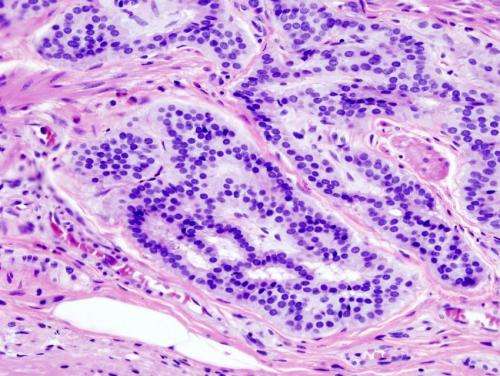Researchers identify new therapeutic target for colorectal cancer


Researchers at the University of Toronto have identified a key protein that supports the growth of many colorectal cancers. The study, which will be published December 27 in the Journal of Cell Biology, reveals that a protein called Importin-11 transports the cancer-causing protein βcatenin into the nucleus of colon cancer cells, where it can drive cell proliferation. Inhibiting this transport step could block the growth of most colorectal cancers caused by elevated βcatenin levels.
Around 80% of colorectal cancers are associated with mutations in a gene called APC that result in elevated levels of the βcatenin protein. This increase in βcatenin is followed by the protein’s accumulation in the cell nucleus, where it can activate numerous genes that drive cell proliferation and promote the growth and maintenance of colorectal tumors. But how βcatenin enters the cell nucleus after its levels rise is poorly understood. “Because the molecular mechanisms underlying βcatenin nuclear transport remain unclear, we set out to identify genes required for continuous βcatenin activity in colorectal cancer cells harboring APC mutations,” says Stephane Angers, a professor in the Department of Pharmaceutical Sciences at the University of Toronto’s Leslie Dan Faculty of Pharmacy.
Using CRISPR DNA editing technology, Angers and colleagues, including graduate student Monika Mis, developed a new technique that allowed them to screen the human genome for genes that support βcatenin’s activity in colorectal cancer cells after its levels have been elevated by mutations in APC. One of the main genes they identified was IPO11, which encodes a protein called Importin-11 that is known to be involved in nuclear import.
Angers and colleagues found that Importin-11 binds to βcatenin and escorts it into the nucleus of colorectal cancer cells with mutations in APC. Removing Importin-11 from these cells prevented βcatenin from entering the nucleus and activating its target genes.
The researchers discovered that Importin-11 levels are often elevated in human colorectal cancers. Moreover, removing Importin-11 inhibited the growth of tumors formed by APC mutant cancer cells isolated from patients.
Source: Read Full Article




